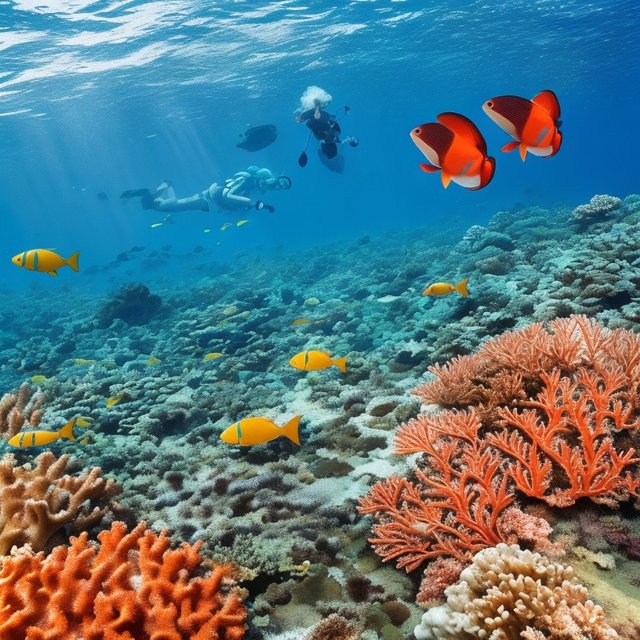Coral reefs and marine life are some of the most vulnerable and delicate ecosystems on our planet, and they are facing unprecedented challenges due to climate change. The warming of the Earth's climate and the subsequent changes in the oceans are having profound effects on these valuable habitats, threatening not only the marine biodiversity but also the millions of people who depend on them for their livelihoods. In this article, we will explore the consequences of climate change on coral reefs and marine life, as well as the solutions and efforts to mitigate its impact.
Consequences of Climate Change on Coral Reefs:
One of the most devastating impacts of climate change on coral reefs is coral bleaching. Corals are sensitive organisms that live in a symbiotic relationship with tiny algae called zooxanthellae. When the ocean temperatures rise above a certain threshold, the corals expel the zooxanthellae, leading to the loss of the colorful algae and the coral's vibrant colors. This process weakens the coral, making it more susceptible to diseases and mortality.
Rising sea levels, another consequence of climate change, pose a threat to coral reefs, particularly in low-lying areas. Increased sea levels can lead to reduced light exposure for corals, hindering their growth and survival.
Ocean acidification, caused by the absorption of excess carbon dioxide from the atmosphere into the oceans, also affects coral reefs. Acidic conditions make it difficult for corals to build their calcium carbonate skeletons, leading to stunted growth and increased vulnerability.
Impact on Marine Life:
The consequences of climate change extend beyond coral reefs, affecting various marine species and ecosystems. Many marine animals, including fish, marine mammals, and sea turtles, rely on coral reefs for shelter, food, and reproduction. The loss of coral reefs can disrupt the delicate balance of marine ecosystems and lead to declines in fish populations and other marine species.
Additionally, changes in ocean temperatures and currents can alter the distribution and migration patterns of marine species, impacting their breeding and feeding grounds. This can have cascading effects on the entire food chain and the biodiversity of marine ecosystems.
Solutions and Mitigation Efforts:
Addressing the impact of climate change on coral reefs and marine life requires collective action and international cooperation. Some of the key solutions and mitigation efforts include:
Reducing Greenhouse Gas Emissions: The primary driver of climate change is the increase in greenhouse gas emissions. Countries and industries must work together to reduce emissions and transition to cleaner and more sustainable energy sources.
Marine Protected Areas: Establishing marine protected areas and no-take zones can provide refuge and protection for coral reefs and marine species, allowing them to recover and rebuild their populations.
Sustainable Fishing Practices: Implementing sustainable fishing practices, such as avoiding overfishing and destructive fishing methods, can help preserve marine biodiversity and support the resilience of marine ecosystems.
Restoration and Rehabilitation: Efforts to restore damaged coral reefs through coral transplantation and rehabilitation can aid in their recovery and promote the growth of new coral colonies.
Public Awareness and Education: Raising public awareness about the importance of coral reefs and marine life and the threats they face is crucial. Education and engagement can inspire individuals to take action and support conservation initiatives.
Conclusion:
The impact of climate change on coral reefs and marine life is a pressing global concern that demands urgent attention and action. The consequences of warming oceans and rising sea levels threaten the very existence of these precious ecosystems and the marine species that call them home. By addressing the root causes of climate change, implementing sustainable practices, and working collaboratively, we can safeguard coral reefs and marine life for future generations. As stewards of our planet, we have the responsibility to protect and preserve these invaluable habitats, ensuring that they continue to thrive and contribute to the health and vitality of our oceans and the entire Earth.
